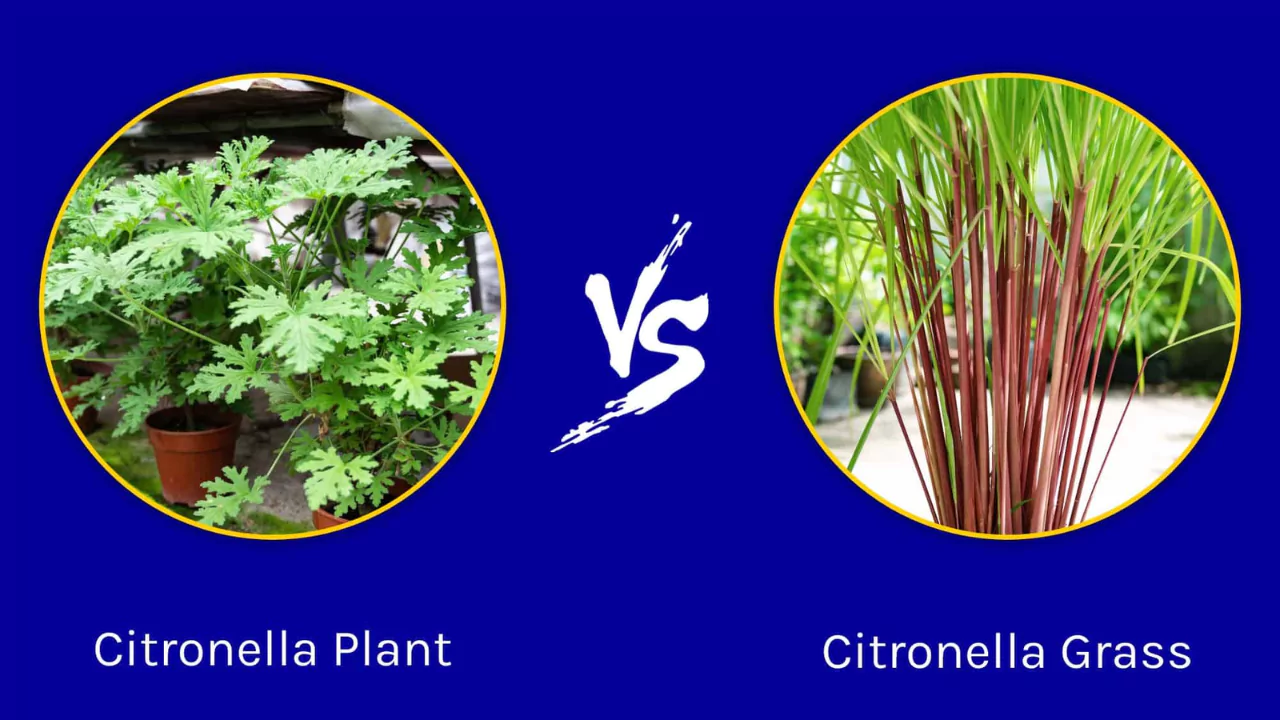Numerous plant enthusiasts prefer planting citronella in their gardens to repel mosquitoes. However, it is important to note that there are different kinds of plants sold under the name ‘citronella’.
Citronella Geranium Versus Citronella Grass and Lemon Grass: Botany
- Citronella geranium and citronella grass are two different species. Citronella geranium is botanically referred to as Pelargonium citrosum and its common name is citronella geranium.
- Citronella grass is a perennial grass in warmer USDA Hardiness Zone 10 to 12. In cooler climates it is grown as an annual.
- Sometimes citronella grass is colloquially known as lemon grass, although it is important to note that while it is from the same family of Cymbopogon plants, citronella grass (Cymbopogon nardus or Cymbopogon winterianum) is not the same as lemongrass which is botanically called Cymbopogon citratus.
- Most of the nurseries, big box stores and garden centers in your area would most likely sell citronella geranium or citronella grass as other plants that have a lemony odor are sold under the title ‘citronella’ and this is due to their resemblance to true citronella plants.

Citronella Geranium Versus Citronella Grass: Appearance
- Mature citronella grass can grow up to six feet tall and four feet wide. It grows in clumps and has tall, narrow lance-shaped foliage that resembles blades of grass.
- Citronella geranium on the other hand, has feathery, ruffly, lacy leaves made of foliage that is crinkled and serrated and spreads out. Auspiciously, citronella geraniums also form flowers that may be purple, white, or pink. Unlike citronella grass, citronella geranium does produce flowers.
- To differentiate between the two, observe the foliate. The more tell-tale lemon grass known as Cymobopogon variety has fully green foliage, while citronella grass has red-tinged pseudostems, which are the overlapped bases of leaves that give the illusion of a stem.
Citronella Geranium Versus Citronella Grass: Repelling Mosquitoes
- It is no surprise that citronella grass leads in the battle against repelling mosquitoes, especially because it is known for this. However, it is the plant’s citronella oil that does the repelling.
- There is a debate in the literature regarding the efficacy of citronella grass oil for the repulsion of mosquitoes. Some have argued that the oil does offer some level of repellent properties whereas others counter that the oil lacks any repellent capabilities.
- In contradiction to its name, research indicates that citronella geranium is a poor mosquito repellent.
Now that you have been introduced to the various plants that can be marketed as ‘citronella’, you also understand that these plants do not possess the ability to passively repel mosquitoes by merely existing in a garden. What they do is allow the fabrication of mosquito repellent products through the oil extracted from citronella grass plants. For more information regarding plants possessing the ability to repel mosquitoes, consult our publications titled Repel Mosquitoes by Growing These Plants and How to Repel Mosquitoes with Container Plants.